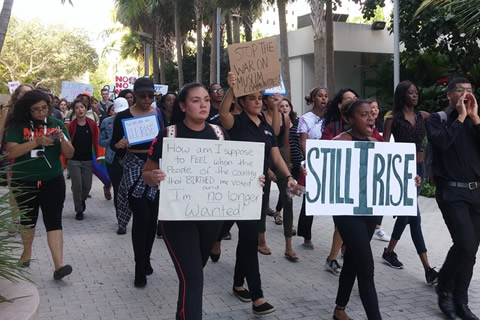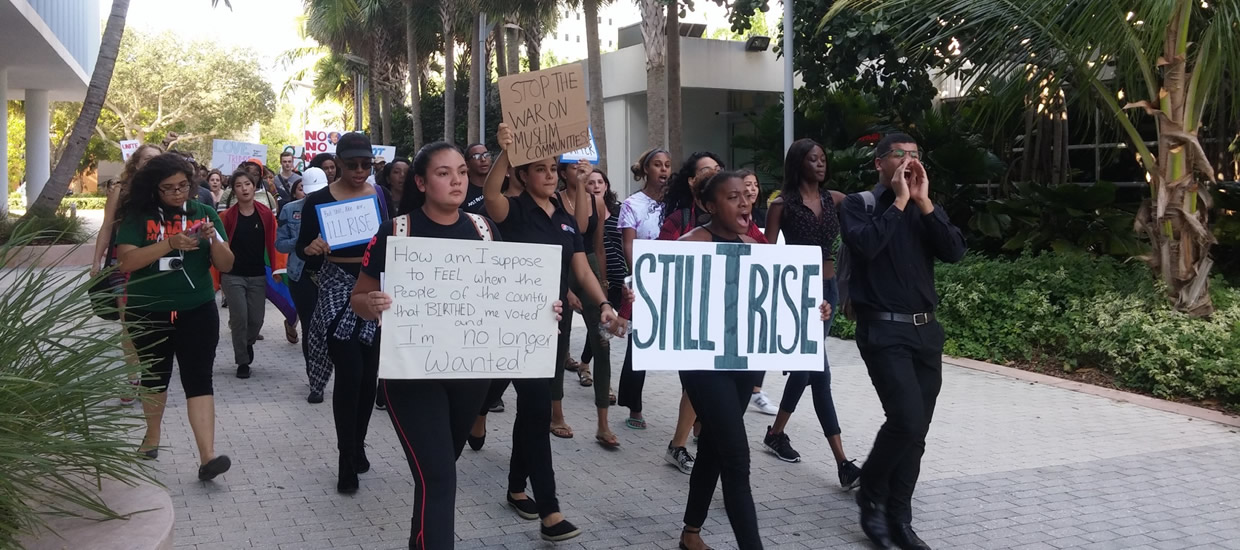Student Code of Conduct Guidelines for Student Activism
The University of Miami recognizes that peaceful and orderly demonstration is considered to be one of the many legitimate avenues for the free expression of ideas. In our support of student activism, the Dean of Students Office has provided some additional guidance to ensure that students stay safe and in good standing as they exercise their rights to free speech and free expression. Complete policies for our standards of conduct can be found in the Student Rights and Responsibilities Handbook. It is also important to note that the Code of Conduct governs student behavior whether an incident occurs on campus or in any location off campus from the time of admission to the University through the time when a student has permanently severed ties with the University.
Are you planning an on-campus demonstration?
The University defines a demonstration as any public display of support for, or in opposition to, any person, group, organization, cause, institution, idea, or policy. All recognized University organizations and full- or part-time students who wish to schedule a demonstration, rally, protest, or equivalent activity must follow the appropriate steps to get their demonstration registered and supported. To request the required Demonstration Registration Form, please email doso@miami.edu. Full Demonstrations policy.
If you have a question about a policy or wish to learn more about the process for registering your demonstration, rally, or protest, please contact the Dean of Students Office.
Policy Guidelines
Whether you are planning a demonstration, or contemplating participating in one, the guidelines and resources below are intended to help you make the most of your experience.





